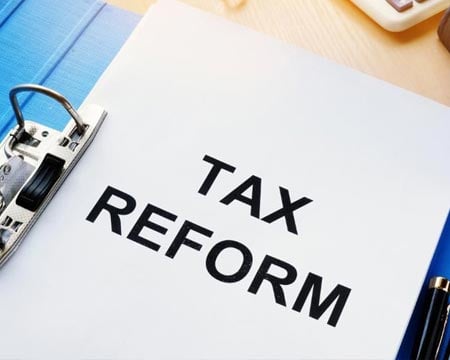Key Takeaways
- Guaranteed payments to partners are treated similarly to wages, are subject to self-employment taxes, and are not eligible for the Section 199A 20 percent deduction.
- Restructuring guaranteed payments as distributions with matching profit allocation can potentially allow partners to utilize the Section 199A 20 percent deduction, provided they are under certain taxable income thresholds.
- Partners in a specified service trade or business, under the taxable income threshold, can achieve deductions despite the nature of their business, while other businesses can benefit from converting guaranteed payments even if taxable income exceeds threshold amounts.
Many entities (including LLCs) classified as partnerships for tax purposes pay guaranteed payments to partners or members who are service providers.
Generally, guaranteed payments are treated similarly to wages. The recipient service partner reports ordinary income subject to self-employment taxes, and the payor partnership claims a deduction. And like wages, guaranteed payments paid to a partner are not eligible for the section 199A 20 percent deduction created as part of the Tax Cuts and Jobs Act.
Furthermore, the guaranteed payment deduction reduces the amount of income otherwise eligible for the section 199A 20 percent deduction available through the paying partnership.
Partnership Guaranteed Payments vs Profit Allocation
For partnerships with guaranteed payments, it may make sense in some cases to restructure the payments as distributions with a matching profit allocation. Allocations of profits, like guaranteed payments, are generally ordinary income, and can be subject to self-employment taxes for a service partner. Also, an allocation of net profit to one partner reduces the net income allocated to the other partners. However, payments out of net profits, unlike guaranteed payments, allow the recipient partner to potentially make use of the section 199A 20 percent deduction.
How the Section 199A Deduction Works
For example, assume Amy, Brett, and Colin are equal 1/3 partners in a law practice (an LLC classified as a partnership for tax purposes) generating $300,000 of taxable income from legal fees every year. In exchange for services, each partner is paid a $100,000 guaranteed payment, reducing the partnership’s taxable income to $0. The partners learn that none of their income is eligible for the section 199A 20 percent deduction. In response, the partnership amends its operating agreement, providing that instead of a guaranteed payment, each partner is entitled to 1/3 of the partnership’s profits. Assuming the partnership again generates $300,000 of taxable income, each partner would be allocated $100,000 of net income. Provided each of the partners has taxable income under certain threshold amounts (generally $364,200 for married filing joint taxpayers and $182,100 for single filers, for the 2023 tax year), the partners are each eligible for the section 199A 20 percent deduction, resulting in a $20,000 deduction and taxes paid on only $80,000 of the $100,0000 received.
Note: this result is achieved even though the partners participate in a specified service trade or business (as defined under section 199A) that ordinarily does not generate income eligible for the section 199A 20 percent deduction. This is because the partners each make under the taxable income threshold amount. But a business that is not considered a specified service trade or business can benefit from converting a guaranteed payment to a net income payment even if the recipient partner has taxable income exceeding the threshold amounts. However, other limitations could apply, like the W-2 wage limitation.
In some cases, it is even possible to grant a partner a priority allocation of net profits before other partners if a partnership wishes to provide a payment preference to a partner. For example, in lieu of a $100,000 guaranteed payment, a partner could be allocated the first $100,000 of the partnership net income before income is paid to any other partner.
Distributions vs Guaranteed Payments
Current regulations allow partners to take an “advance or draw” distribution against an end of the year profit allocation. For example, a partner can take a monthly draw, and so long as that draw amount does not exceed the partner’s end of the year profit allocation, the draw is treated as a distribution occurring at the end of the year. Further, so long as the total draw amount does not exceed the yearly allocation of income, the distribution generally does not generate tax consequences. Taking cash distributions in years where there are not sufficient allocations of income, however, could result in those distributions being treated as a guaranteed payment.
Next Steps for Guaranteed Payments & 199A
Partnerships considering altering payments of guaranteed payments should consult with their tax advisors and carefully consider amending agreements to avoid unwanted economic changes. IRS rules and regulations allow partnerships to make amendments to operating agreements that are effective as of the first day of the partnership’s taxable year, provided the amendments are effectuated before the due date (without extensions) of the partnership’s tax return.
Stay Up to Date

Tax
We have the tax expertise to meet your business needs.
Who We Are
Eide Bailly is a CPA firm bringing practical expertise in tax, audit, and advisory to help you perform, protect, and prosper with confidence.


